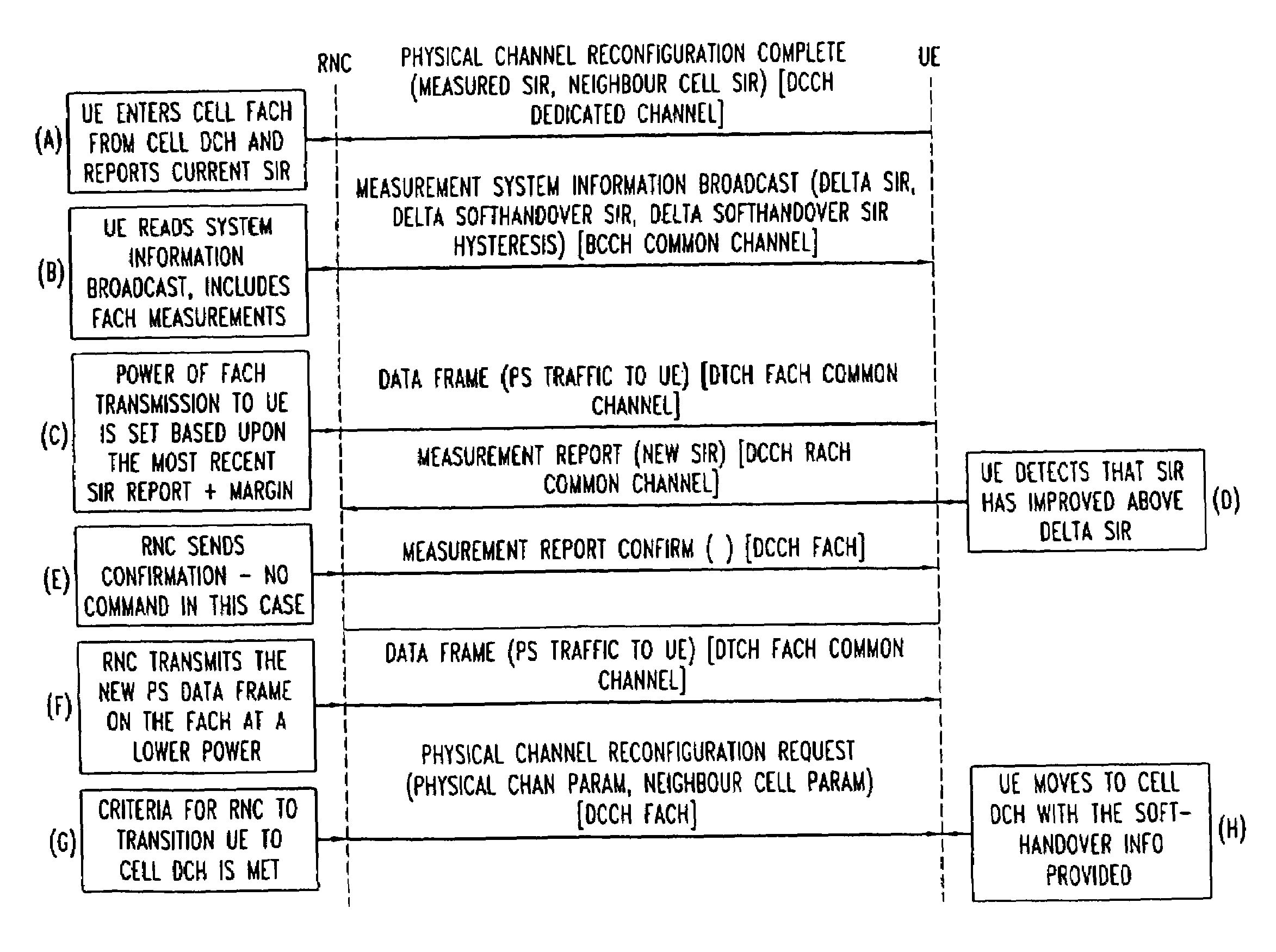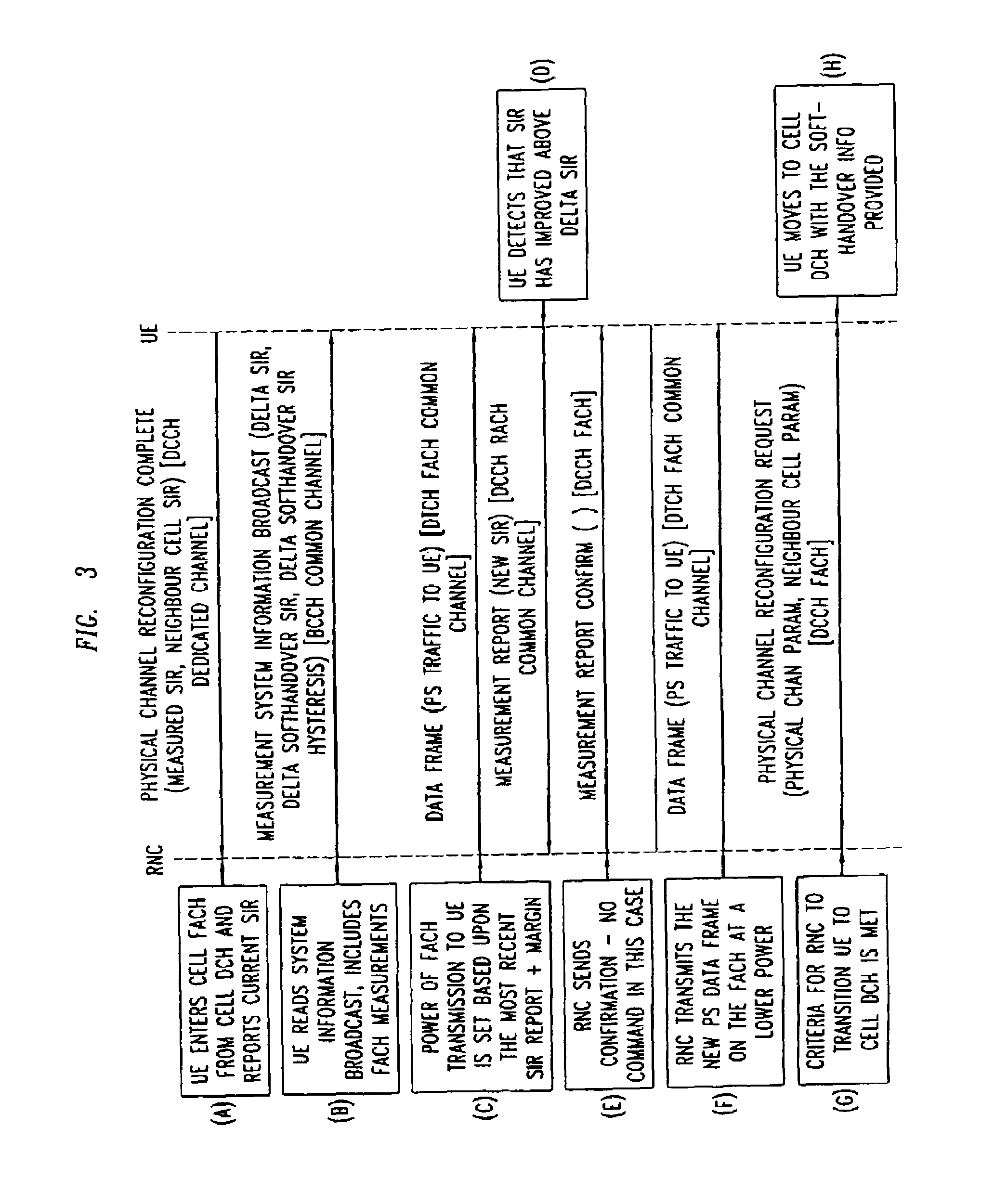Adjusting the transmission power of a forward access channel (FACH), and a corresponding network for mobile telecommunications
a forward access channel and transmission power technology, applied in the field of forward access channel transmission power, can solve the problems of reducing the capacity of the channel for user data or voice, no reliable means, and traffic capacity reduction, and achieves rapid synchronisation, accurate initial transmit power level, and efficient power allocation
- Summary
- Abstract
- Description
- Claims
- Application Information
AI Technical Summary
Benefits of technology
Problems solved by technology
Method used
Image
Examples
example processes
[0025]FIG. 3 shows a mobile user terminal entering Cell-FACH state (denoted steps a,b in FIG. 3), receiving data (c), detecting that the received signal to interference ratio (SIR) of the serving cell has improved and so triggering a measurement report (d,e), and receiving subsequent data at lower power (f). It also shown transiting to Cell-DCH state (g,h).
[0026]FIG. 4 shows a mobile user terminal in Cell-FACH state (j), a neighbour cell having previously been reported as satisfying soft-handover criteria, the neighbour cell no longer meeting the criteria and so sending a measurement report (k), this being received and confirmed (l) by the base station. It also shows a further neighbour now meeting the criteria (m) and so acting similarly. It also shows a further neighbour no longer meeting the criteria (o) and sending a measurement report accordingly. In this case, the RNC decides the measurement reporting is too frequent and so disables (p) the measurement reporting.
Underlying Pro...
PUM
 Login to View More
Login to View More Abstract
Description
Claims
Application Information
 Login to View More
Login to View More - R&D
- Intellectual Property
- Life Sciences
- Materials
- Tech Scout
- Unparalleled Data Quality
- Higher Quality Content
- 60% Fewer Hallucinations
Browse by: Latest US Patents, China's latest patents, Technical Efficacy Thesaurus, Application Domain, Technology Topic, Popular Technical Reports.
© 2025 PatSnap. All rights reserved.Legal|Privacy policy|Modern Slavery Act Transparency Statement|Sitemap|About US| Contact US: help@patsnap.com



